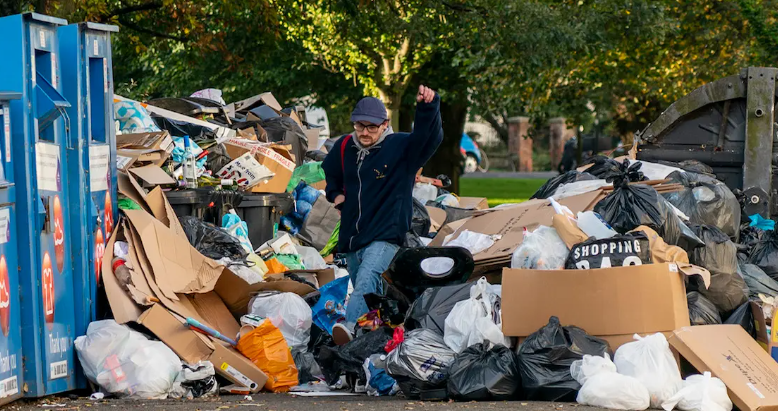In the hustle and bustle of modern life, an alarming truth often goes unnoticed—the staggering quantity of garbage generated each day. From the moment we wake up until we retire for the night, the world is in a constant state of producing waste. This article dives deep into the eye-opening statistics and consequences of this relentless cycle, shedding light on the global garbage crisis and daily garbage production.
The Growing Epidemic
Transitioning to the heart of the matter, it’s vital to comprehend the sheer scale of the issue. Every day, an estimated 3.5 million tons of waste are produced worldwide, a statistic that has escalated dramatically in recent decades. Thus, this surge can be attributed to escalating consumerism, population growth, and the prevalence of single-use products.
The Urban Conundrum
To add on, urban centers serve as epicenters for waste generation, with their colossal populations and consumption patterns. A metropolis of one million inhabitants can easily churn out over 1,000 tons of trash daily. Hence, inhabitants of these cities find themselves grappling with overflowing landfills and incineration plants working tirelessly to combat the influx.
A Plastic Predicament
Transitioning into a particularly pressing facet of daily garbage, plastic waste remains a menacing adversary. On a daily basis, humanity discards an astronomical 300 million tons of plastic. Therefore, this synthetic material, notorious for its resistance to decomposition, inundates ecosystems, choking aquatic life and tarnishing landscapes.
The Road to Recycling
In addition, while the statistics are indeed distressing, it’s crucial to highlight efforts being made to alleviate the problem. Recycling emerges as a beacon of hope, providing a chance to mitigate the environmental impact of garbage production. However, the recycling rate remains dishearteningly low, averaging at around 20%, leaving significant room for improvement.

E-Waste Explosion
Furthermore, the digital age, while revolutionizing connectivity, has birthed a new form of waste—electronic waste or e-waste. The rapid pace of technological advancements leads to devices becoming obsolete in the blink of an eye, resulting in discarded gadgets numbering in the millions daily. Moreover, the hazardous substances in e-waste pose serious threats to both the environment and human health.
Food for Thought: Organic Waste
In an ironic twist, the sustenance we consume also contributes to the waste crisis. Organic waste, including food scraps and yard trimmings, makes up a substantial portion of daily garbage. Approximately one-third of all food produced globally ends up as waste, squandering resources and perpetuating the cycle of excess.
The Ripple Effect
Transitioning to the broader implications, the consequences of excessive garbage production reverberate far beyond mere aesthetics. Landfills overflow, emitting harmful gases like methane—a potent contributor to climate change. Moreover, incineration, while reducing the volume of waste, releases pollutants into the air, further compromising air quality.
Mindset Shift: Toward Sustainability
Additionally, breaking free from this cycle necessitates a paradigm shift in attitudes toward consumption and disposal. Adopting a circular economy approach, wherein products are designed for longevity, repairability, and recyclability, holds promise. Alongside this, embracing minimalism and reducing single-use items can tangibly curb the daily garbage influx.
Conclusion
In conclusion, as we grapple with the daunting statistics, it’s imperative to recognize that daily garbage production is not just a localized issue—it’s a global predicament. The numbers underscore the urgency for comprehensive waste management strategies, sustainable consumption practices, and heightened environmental awareness. The time to act is now; otherwise, we risk drowning in our own waste, leaving an inhospitable planet for generations to come. The solution lies in our collective choices, as we strive to strike a balance between modern living and preserving the planet we call home.



